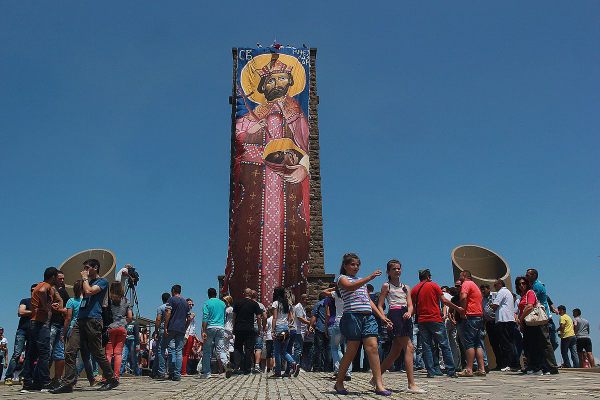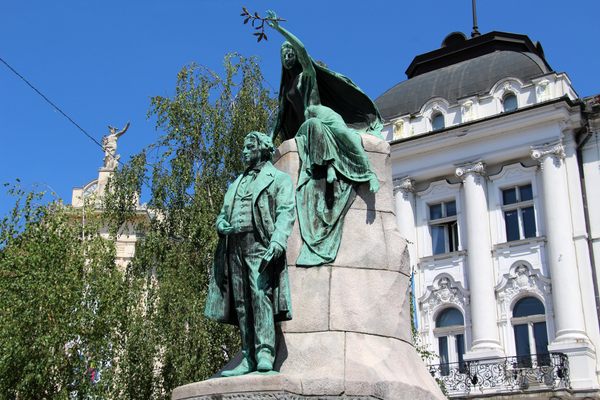About
At this site, Balkan history changed its course twice, some six centuries apart.
Between the 14th and early 20th centuries, the Ottoman Empire controlled vast swathes of territories in the Middle East, Southeast Europe, and North Africa. In 1389, intent to expand the empire beyond Southeast Europe, Sultan Murad Hüdavendigâr led the Ottoman troops further than they had ever been, in Serbian territory. In a field about five kilometers from Pristina (Kosovo), the Ottoman army clashed with the Serbian army, which was led by Prince Lazar Hrebeljanović. Although reliable documentation is little, both armies suffered immense losses. This was a temporary setback for the Ottoman Empire, which was able to mobilize many more troops, but for Serbia, the battle was devastating. Serbian society split into two factions: one pro-Ottoman Empire, and one against. The whole country was weakened by the divide.
Through the centuries, the Battle of Kosovo acquired a mythical aura in Serbian folklore, and in 1953, the Socialist Federal Republic of Yugoslavia decided to erect a monument to commemorate the battle. It consists of a medieval-looking tower surrounded by six tubular structures that are truncated at an angle. On the tower, there is an inscription in honor of Prince Lazar Hrebeljanović. This monument was named Gazimestan, probably combining the Arabic word for warrior, ghazi, and the Persian word for place, stan, but alternative etymologies exist.
In 1989, 600 years after the Battle of Kosovo, the Yugoslavian President Slobodan Milošević was attending the annual celebrations and gave a speech in which he recognized the possibility of ethnically-motivated armed conflict within Yugoslavia. Later, Milošević and his supporters went to great lengths to disconnect the Gazimestan speech from the conflict that eventually led to the disintegration of Yugoslavia, but if his words did not cause the conflict, they certainly foreshadowed it.
Related Tags
Know Before You Go
You need to leave your passport with the police at the entrance to access Gazimestan.
Community Contributors
Added By
Published
December 21, 2023































